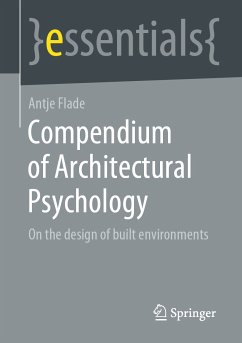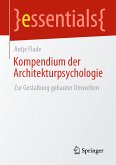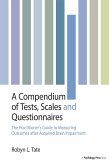This essential provides planning-relevant information on architectural psychology concepts and empirical results on the effects of built environments on people, and provides guidance on how to optimize the relationship between people and the built environment.
The Content
Architecture and Psychology. - Architectural psychology.- Paradigms of man-environment relations.- The Behavior Setting concept.- The perceived environment.- Affective qualities of environments.- Environmental aesthetics.- Privacy.- Territoriality.- Crowding and distance behavior.- Restorative environments.- Third places in public space.- Methods of architectural psychology research.
The Target groups
- Architects, urban planners, designers, psychologists, employees in housing and real estate companies, investors
- Students in the fields of architecture, urban planning, design and psychology
The Author
After studying psychology in Hamburg, the author completed her doctorate at the Technical University of Darmstadt on the topic of perceptual thresholds. Questions of environmental perception aroused her interest in environmental psychology, which she pursued in numerous research projects as a scientist at the interdisciplinary Institute Living and Environment (Wohnen und Umwelt) in Darmstadt. She is author of psychological reference books and journals on topics in residential and architectural psychology, mobility and urban psychology as well as the psychology of nature.
Dieser Download kann aus rechtlichen Gründen nur mit Rechnungsadresse in A, B, BG, CY, CZ, D, DK, EW, E, FIN, F, GR, HR, H, IRL, I, LT, L, LR, M, NL, PL, P, R, S, SLO, SK ausgeliefert werden.









